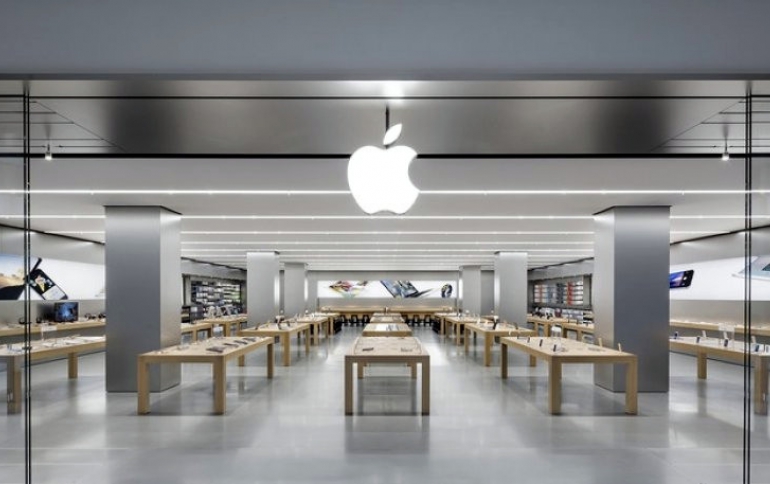
Supreme Court Ruling Allows Consumer Antitrust Suit Against Apple Store To Proceed
Consumers can pursue their lawsuit that accuses Apple of using its monopoly power to raise prices for the apps sold through the App store, the U.S. Supreme Court ruled on Monday.
The antitrust suit centers on Apple's approach to the App store, which has drawn criticism from some companies that use it to deliver services to iPhone users.
Spotify and Netflix have taken issue with the 30% commission that Apple collects from an app’s first-year subscriptions, and a 15% share of revenue generated from long-term subscribers.
That fee is at the heart of the dispute that rose to the Supreme Court.
Four iPhone owners filed a suit in 2011, claiming that Apple monopolizes the “app aftermarket” and extracts a fee that results in higher prices for millions of consumers who use their phones to buy food, arrange transportation or buy movie tickets.
Justice Brett Kavanaugh rejected Apple’s arguments, writing that the technology giant sought to draw “an arbitrary and unprincipled line” among retailers, based upon their arrangements with suppliers.
“Apple’s line-drawing does not make a lot of sense, other than as a way to gerrymander Apple out of this and similar lawsuits,” Kavanaugh wrote.
Apple long has argued it heavily curates its App Store in part to protect consumers from predatory, insecure or harmful software. The case will continue through the courts. Apple issued a statement, saying it’s confident that it will prevail in court.
“Developers set the price they want to charge for their app and Apple has no role in that. The vast majority of apps on the App Store are free and Apple gets nothing from them,” Apple said in a statement. “The only instance where Apple shares in revenue is if the developer chooses to sell digital services through the App Store.”
The App store is contributing an estimated $3.7 billion of the record $11.5 billion in services revenue the company reported during its most recent quarter.
The ruling didn’t address whether Apple’s practices actually violate the antitrust laws. But it could have serious repercussions for one of Apple’s most lucrative lines of business.
In December, Netflix said it would no longer allow new customers to pay for their monthly subscription fees through iTunes. That follows an earlier move Spotify, which filed a complaint in March with the European Commission alleging unfair business practices.





















